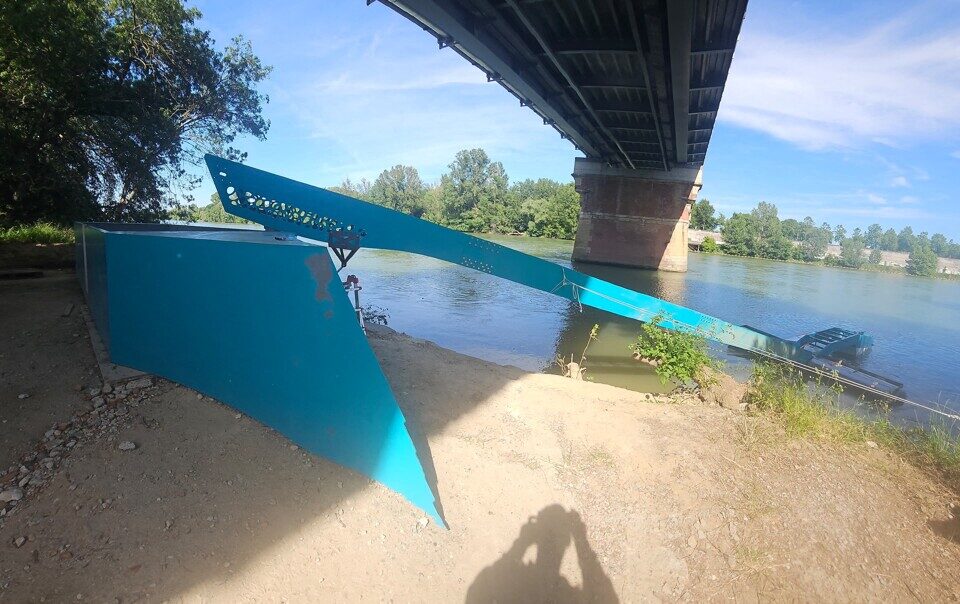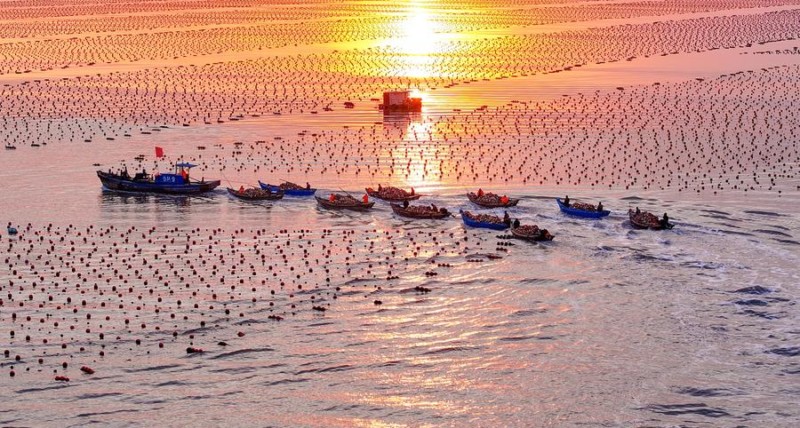A barrier designed to catch plastic waste in rivers before it reaches and pollutes the oceans — that’s the concept born in Toulouse and soon to be deployed in the Garonne River.
Could there one day be more plastic than fish in the ocean? This scenario is taken very seriously by scientists, who warn that without action, it could become a reality by 2050. In France alone, up to 500 tons of plastic are transported from rivers to the ocean each year.
A Barrier on the Garonne
An innovation developed in the “Pink City” (Toulouse), with the support of Toulouse Métropole, could help mitigate the issue. In the coming weeks, a unique type of filtering barrier will be installed on the Garonne River, near the Blagnac bridge.
The idea behind Plastic Vortex is to stop plastic waste at the source — in rivers, which act like highways for plastic heading toward the sea.
Automated Conveyor System
The barrier works by harnessing the river’s natural flow. A floating V-shaped structure, placed diagonally to the current, directs waste to a single collection point.
Underwater, submerged skirts reach 40 cm deep, catching microplastics and small debris. An automated conveyor then transfers the collected waste to a container on the riverbank, where it can be emptied, sorted, and processed.
Bottles, Cigarette Butts, Tires…
The creators of Plastic Vortex claim the system intercepts up to 90% of macro-waste, as small as 1 mm in diameter — including bottles, plastic bags, cigarette butts, and even tires.
In Toulouse, around 8 tons of waste are expected to be collected annually, sorted, and recycled. A drop in the ocean compared to the 2.5 million tons of plastic that enter the seas every year — but a drop free of pollution.
“It’s a great innovation and a project that truly makes sense,” says Patrick Thaunay, co-founder of Plastic Vortex. “The system is silent, uses very little electricity, and can be remotely monitored.”
Expansion to 30 More Sites in France
The barrier is scheduled for deployment this summer.
The project started in Toulouse back in 2019, when Plastic Vortex was still just an association. They tested their prototype barrier on the Garonne near the Sept Deniers neighborhood and the Blagnac bridge.
Following its deployment in Toulouse, Plastic Vortex barriers could be rolled out at 30 additional sites across France. “We aim to cover 90% of the territory and capture over 70% of the floating waste entering our seas and oceans — more than 175 tons of plastic per year,” say the founders. “That’s equivalent to 9 million plastic bottles collected annually.”



